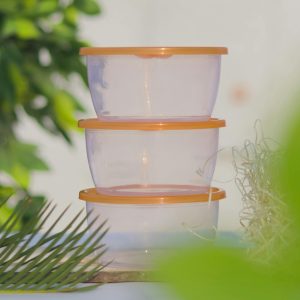 You plan and make your meals ahead and pack them in plastic containers. All you have to do is heat and serve. One problem people in Fort Lee, NJ, often ask is whether there are side effects from heating food that way. It’s certainly convenient. It all depends on the type of plastic and whether it’s microwave safe or if the plastic contains BPA, PET, or bisphenol-S—BPS.
You plan and make your meals ahead and pack them in plastic containers. All you have to do is heat and serve. One problem people in Fort Lee, NJ, often ask is whether there are side effects from heating food that way. It’s certainly convenient. It all depends on the type of plastic and whether it’s microwave safe or if the plastic contains BPA, PET, or bisphenol-S—BPS.
What is BPA?
BPA stands for Bisphenol-A. PET stands for polyethylene terephthalates. BPS is the acronym for bisphenol-S. These are chemicals that are concerning. Plastic containing BPA was banned in 2013 from making packaging for infant formulas. At one time, most cans were lined with BPA plastic, but today, 95% are BPA-free. PET was in single-use water bottles. It’s BPA-free but has problems of its own. These plastics leach out the BPA and PET when heated. That allows the carcinogenic, neurotoxic, endocrine-disrupting chemicals to enter the food.
What other problems come from heating food in the wrong type of plastic containers?
Some chemicals that may leach into food when heating containers. Those chemicals may interfere with the biological hormone receptors. It can cause low birth weight when ingested by pregnant women. It can affect fertility, pose an increased risk for breast cancer, and stunt brain development in children. Some have long-lasting effects even when low doses are ingested. Since many chemicals used are endocrine disrupters, it increases the risk of diabetes, reproductive problems, metabolic disorders, obesity, and reproductive issues.
Look for the symbols or words for reassurance.
If the plastic says microwave-safe, has a microwave icon, or the words microwavable, they’re safe for use. They’re made to stand up to the microwave heat with minimal leaching. If the plastic has a recycling code 1, 2, 3, or 5, you can use it to heat supper. It’s heat stable and may not leach the chemicals into food. Don’t heat the plastic with recycling numbers 3, 6, or 7 in the microwave.
- If you have concerns, transfer your food to a glass dish before microwaving it. Don’t use plastic wrap on food in the microwave. Check take-out containers before reheating food.
- Never use old, scratched, or cracked containers. If you’ve microwaved a container several times, it may be time to retire it. Leave the lid slightly ajar to vent. Don’t let the lid press on the food.
- Instead of reusing plastic water bottles, get a metal or glass water bottle to refill. If the plastic container has a 7, without the letters PLA or a leaf symbol, it may contain BPA.
- Microwaving isn’t the only thing that causes the plastic to become more unstable. Putting them in the dishwasher also can. Storing fatty foods in them also can create similar issues.
For more information, contact us today at VIP Fitness Center
